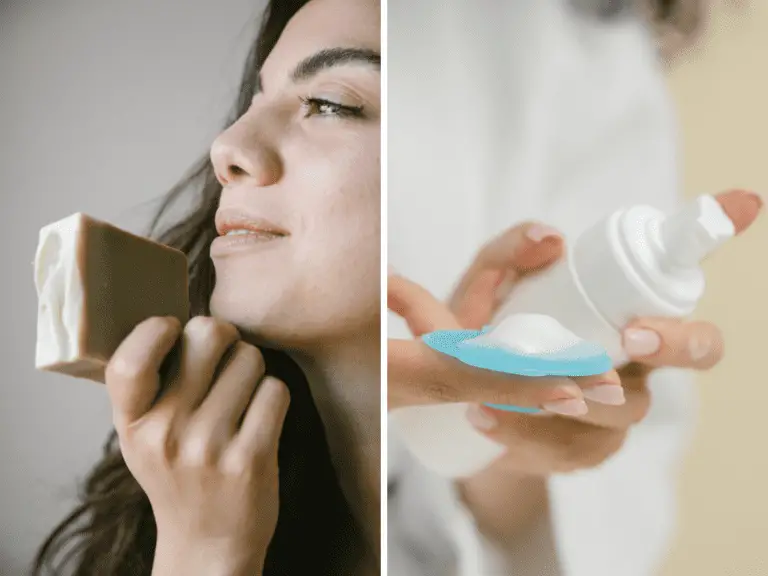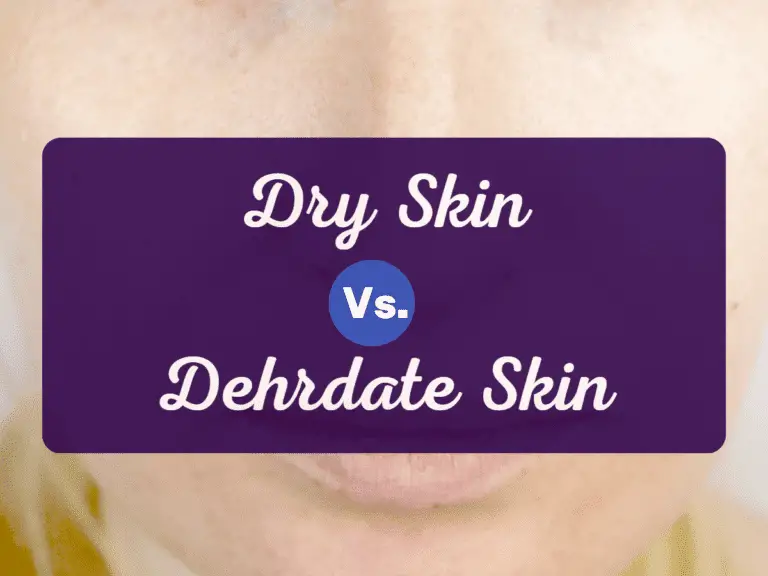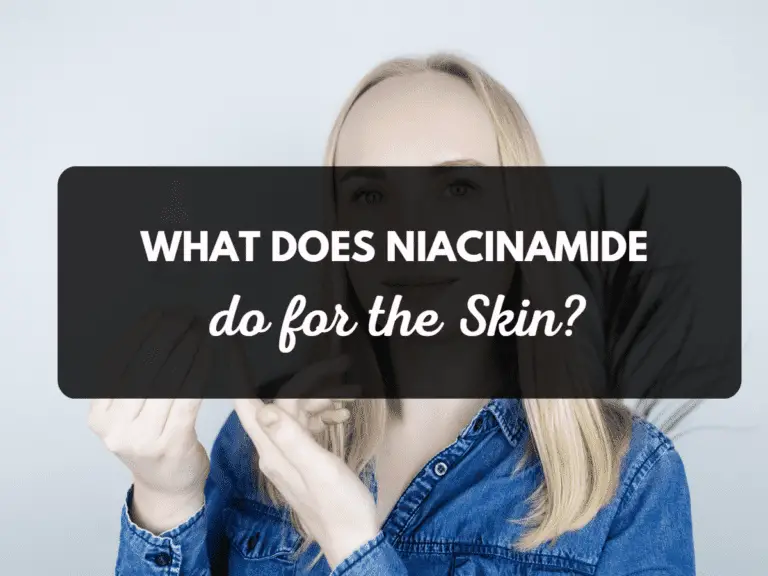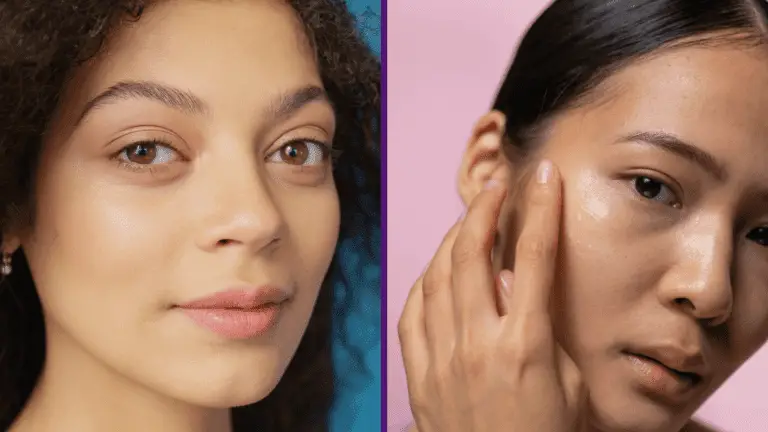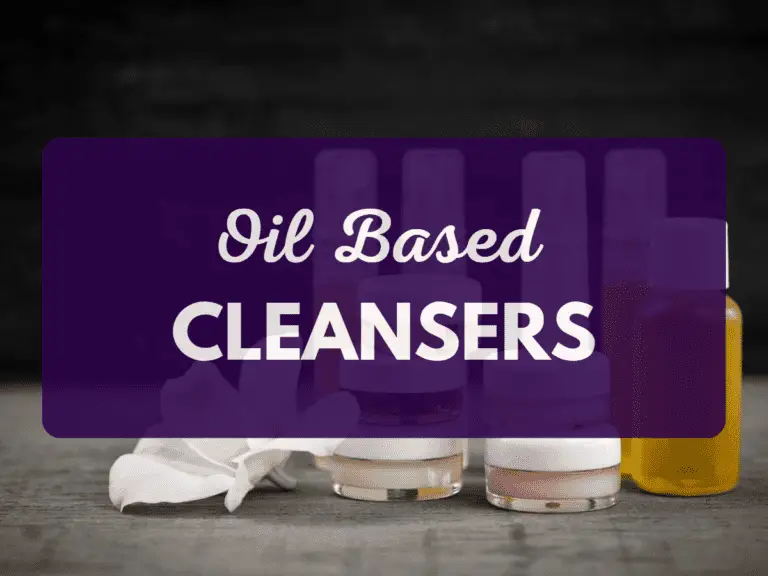The skin barrier is a protective layer that protects the skin from environmental damage. And a damaged or compromised skin barrier can lead to many skin issues.
In this post, you’ll find everything you must know about your skin barrier and barrier and how to protect your skin barrier.
Keep reading!
What is a skin barrier?
The skin barrier is the outermost layer of the skin. The skin barrier is made of 2 main layers: the epidermis and the dermis.
The epidermis (a thin lipid layer) is the outer layer of the skin that provides a waterproof skin barrier and protects against bacteria, UV rays, and other environmental pollutants.
The dermis is the inner layer of the skin that includes blood vessels, nerve endings, hair follicles, and sweat glands.
What is skin barrier damage?
Skin barrier damage is a skin condition that can occur when the outer layer of the skin is damaged. This can happen when the skin is exposed to certain chemicals, cosmetics, or other irritants.
When the skin barrier is damaged, it can no longer effectively protect the body from environmental stressors and moisture loss.
This can lead to many problems, including dryness, itching, and irritation. In severe cases, skin barrier damage can also lead to infection.
What causes skin barrier damage?
Many factors can contribute to skin barrier damage.
One common cause is over-washing with harsh chemicals or scrubbing too vigorously. This can strip away the natural oils that help to keep the skin healthy.
Other causes of damage include exposure to UV light, pollution, and certain medications.
Skin conditions like eczema and psoriasis may also weaken the skin barrier.
Also, smoking, pollution, alcohol consumption, stress, poor diet, and certain medications can also damage your skin barrier.

How do you know if the skin barrier is damaged?
Your skin barrier is your first line of defense against the world, and it’s important to keep it healthy.
Here are some symptoms of a damaged skin barrier symptoms:
1. You have more sensitivities than usual. It could be a sign that your skin barrier is damaged if you’re suddenly experiencing more sensitivities to things like soap, cosmetics, or detergents.
2. Your skin feels dry and tight. A healthy skin barrier should help keep your skin hydrated. It could be a sign of damage if you notice that your skin feels dry and tight, especially after cleansing.
3. You see more breakouts than usual. A damaged skin barrier can lead to increased inflammation and breakouts.
4. Your skin doesn’t look as bright and clear as it used to. The skin barrier helps keep your skin free of excess oil and dirt, so if it s damaged, you might notice that your skin looks dull or matte.
5. Your skin is more sensitive to environmental factors. A healthy skin barrier helps protect your skin from environmental factors that can cause inflammation and damage. If you notice your skin is more sensitive to things like cold, heat, or wind, it could be a sign of damage.
6. Sensitivity to products or ingredients. Find that your skincare products or cosmetics are ineffective at hydrating or protecting your sensitive skin. This could also be a sign of damage.
How to protect your skin barrier?
Here are some tips for protecting your skin barrier:
1. Use gentle cleansers: Cleansing is an important part of any skincare routine, but you need to be careful not to strip away your skin’s natural oils. Choose gentle cleansing products that won’t disrupt your skin barrier.
2. Use moisturizers with ceramides: Ceramides are lipids that help repair and maintain your skin barrier. Choose moisturizers with ceramides to help protect and repair your skin barrier.
3. Apply sunscreen: Sunscreen is essential to any skincare routine for all skin types. Always apply broad-spectrum sunscreen with a minimum SPF of 30 or higher every morning.
4. Use products that contain hyaluronic acid: Hyaluronic acid can help increase skin hydration and protect your skin barrier from the elements, decreasing your risk for dry skin conditions.
5. Drink plenty of water because dehydration can lead to dry skin, so staying hydrated from the inside out is important.
6. Eat healthy foods. Foods high in omega-3 fatty acids, like flaxseeds, walnuts, chia seeds, or salmon, can help improve the health of your skin.
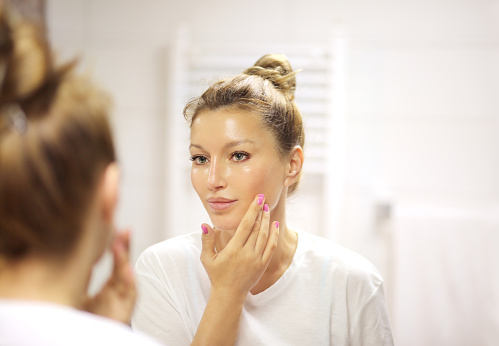
How to treat a damaged skin barrier?
A damaged skin barrier can be treated in many ways, depending on the damage severity.
If the damage is mild, use a gentle cleanser and moisturizer to help repair the skin barrier.
Look for skin barrier repair products with humectants and non-comedogenic, hypoallergenic ingredients.
In case the damage is more severe, you may need to see a dermatologist for treatment.
What ingredients repair the skin barrier?
Various ingredients can repair the skin barrier.
These skin barrier ingredients include:
1. Ceramides: Ceramides are a type of lipid that helps to repair the skin barrier. These lipids can be found in the outer layer of skin (called the stratum corneum), which is why they are so effective at treating dry skin.
2. Niacinamide: Niacinamide is a form of vitamin B3 that is effective at treating and preventing dry skin and reducing irritation.
3. Hyaluronic acid: Hyaluronic acid is a humectant that can bind water molecules to help keep skin moisturized.
4. Glycerine: Glycerine is a humectant, making it an effective moisturizer.
5. Shea butter: Shea butter is a natural emollient that can help maintain hydration and prevent water loss from the skin.
6. Allantoin: Allantoin is an ingredient derived from the comfrey plant that can help soothe and hydrate the skin.
7. Aloe Vera: Aloe Vera is a natural moisturizer that can help smooth and soften the skin. 8. Oats extract: Oats extract is a rich source of natural moisturizing factors that can help moisturize and nourish the skin.
9. Rosehip oil: Rosehip oil contains essential fatty acids, vitamin E, and antioxidants—all of which can help reduce fine lines and wrinkles.
10. Hydrating sheet masks: Sheet masks are soaked in a concentrated serum that can help deliver key ingredients deep into the layers of the skin for maximum absorption and fast results.
Final Thoughts
Skin barrier function is important because it helps to keep the skin healthy and hydrated.
When the skin is healthy and hydrated, it is less likely to become dry, cracked, or irritated.
A healthy skin barrier also helps to protect the skin from environmental stressors, such as pollution and UV radiation.


